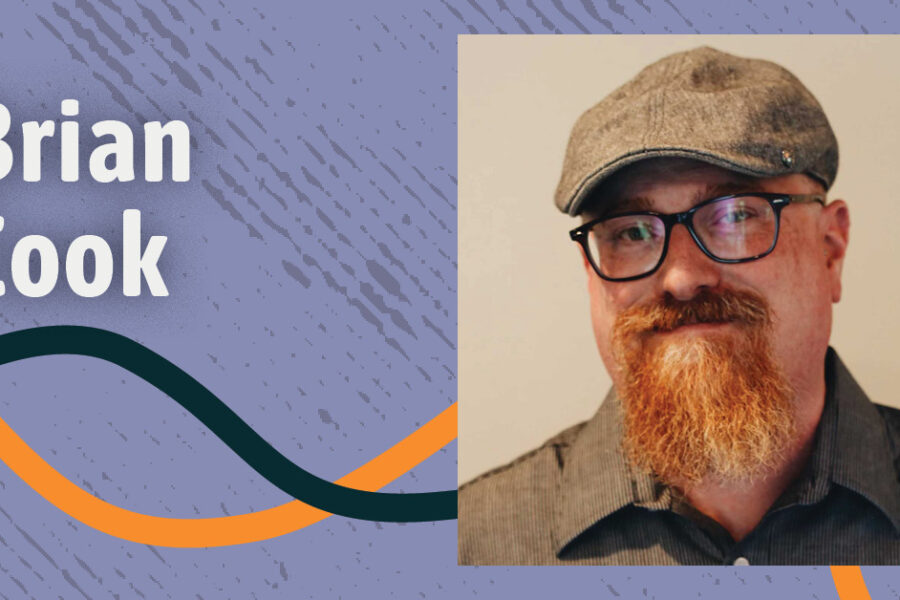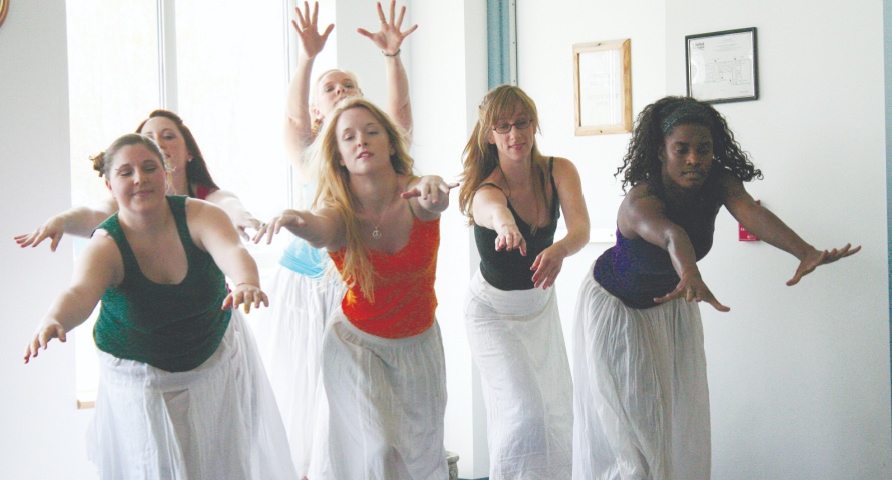Alicia MacDougall has been interested in how the human mind works—why different people approach similar situations in a variety of ways, how relationships form, the content and meaning behind our dreams—for as long as she can remember. For MacDougall, who is prepared to complete her PsyD in Clinical Psychology at Antioch University New England this coming August, the examination of dreams does not only present a window looking on a person’s unconscious activity but can also provide a route to healing through entering into therapeutic exchange with another person.
Having always experienced a rich dream life, her professional interest in dreams was inspired by one of her first classes at Antioch, a psychoanalytic personality seminar taught by Ted Ellenhorn, PhD ABPP. Later on, she took a weekend seminar, again with Ellenhorn, specifically on working with dreams in a clinical setting. The subject resonated with her to such a degree that MacDougall wrote her dissertation on dreamwork, which became a book: The Relational Interpretation of Dreams: When It’s About More Than Your Mother, in which she catalogs interviews with four prominent people in the field of dreams (in case you were wondering, Kevin Costner was not one of them).
The main concept of the book is that the benefit of sharing dreams with another person lies not necessarily in the interpretation of the dream (analysis of symbology) but through the process of exchange. Through conversation, a relationship or bond is formed between the dream-teller and the dream-listener. Having a person serve as a witness to the content of inner life (dreams) is validating and often very healing. MacDougall has observed and experienced first-hand that the investment of another person (therapist/ listener) in this process allows the dreamer to be in conversation around their subconscious activity and experience companionship in a mental/ emotional space that is usually quite solitary.
Origin Story
A member of a family of origin that is, as she puts it with great affection, “wild,” MacDougall comes to her work in the field of psychology with a vested interest in mental health care that emphasizes the individual and their unique background. A hyper-focus on symptoms and diagnosis (the treatment of a patient as a “case” rather than as a person with a multifaceted story) is a tendency she has witnessed in the field of mental health, especially in medical settings, and it’s a weakness many are currently working to improve. She envisions a career working for the destigmatization of clinical presentations through identifying and addressing the underlying issues that are often triggering a client’s symptoms.
Growing up in a caretaker role, first as the eldest sibling of four girls and having taken on many parental responsibilities, and later as the primary caregiver to her disabled mother following a massive stroke, MacDougall is well-prepared for her role as a care provider. “My priorities as a psychologist center around seeing people as people, caring for people as individuals, and really being present with a patient as opposed to seeing a session as simply an item to check off the to-do list,” she says.
MacDougall attended Albertus Magnus College in New Haven, Connecticut, where she majored in psychology with a concentration in counseling and mental health. While there, she completed a substance abuse research internship at Yale University School of Medicine, which led, after graduation, to a full-time job in substance abuse research, and then a job (also at Yale) doing cancer research. In the Yale substance abuse program, MacDougall was moved by clients’ resiliency and the different ways people respond to traumatic experiences.
She knew she wanted to go to graduate school to continue learning and working around these themes, considered medical school, but decided on Antioch University New England’s Clinical Psychology (PsyD) program as her first choice. The ethos of the school aligned with her personal ethos. “Antioch looks at you as a person, whereas in many programs you are a number,” she says. This perspective mirrors her professional approach, which centers on the goal of “bringing humanity back to human services.”
Dreaming the Future
To date, one of the most rewarding aspects of MacDougall’s work has been in witnessing a person go through a positive shift in their lives and being in a position to help facilitate that process. Currently, she’s doing an internship at SUNY Upstate Medical University in Syracuse, New York. In her clinical rotations, she’s worked with adolescents on an adolescent inpatient unit where she was able to focus on her interest in first episode/ early-onset psychosis and psychodiagnostic evaluations. She has also worked with adults on the adult psychiatric inpatient unit, has seen outpatients with a variety of clinical presentations across the lifespan, and is finishing her final rotation on a rehabilitation unit where she sees patients recovering from stroke, spinal cord injuries, traumatic brain injury, and other severe medical conditions.
In addition to her internship, she also does advocacy work through multiple national committees, including but not limited to, founding and co-chairing the Psychotherapy Action Network (PsiAN)’s Developing Professionals Committee, co-chairing the APA Division 39 (Society for Psychoanalysis and Psychoanalytic Psychology)’s Graduate Student Committee, and serving as a council member/student representative on the Psychoanalytic Specialty Council, Council on Specialties in Professional Psychology. Her next stop is a postdoc at Cambridge Health Alliance/Harvard Medical School, where she’ll be on child and adolescent inpatient units, continuing the work she is passionate about.
In the future, she hopes to focus on first episode and early onset psychosis, childhood trauma, dissociative spectrum disorders, and psychodiagnostic evaluation. She wants to do a little bit of everything: teaching, writing, advocacy, clinical work, and research. Through it all, she feels passionate about maintaining a psychoanalytic basis centered around these basic understandings:
- Humans are multifaceted and complex
- The reasons (source) of the things people do go beyond behavior and conscious cognition
- It’s important to look deeply at, and to listen carefully for, layers and nuance to truly hear and see another person
Perhaps most importantly, she plans to incorporate dreamwork into all aspects of her work. “Dreamwork allows me a space to be curious and explore a new world,” she says. “Nothing is as it seems to be in the dream world. There’s so much to unpack in a dream, so many ways to unpack the multitude of messages dreams carry.”




